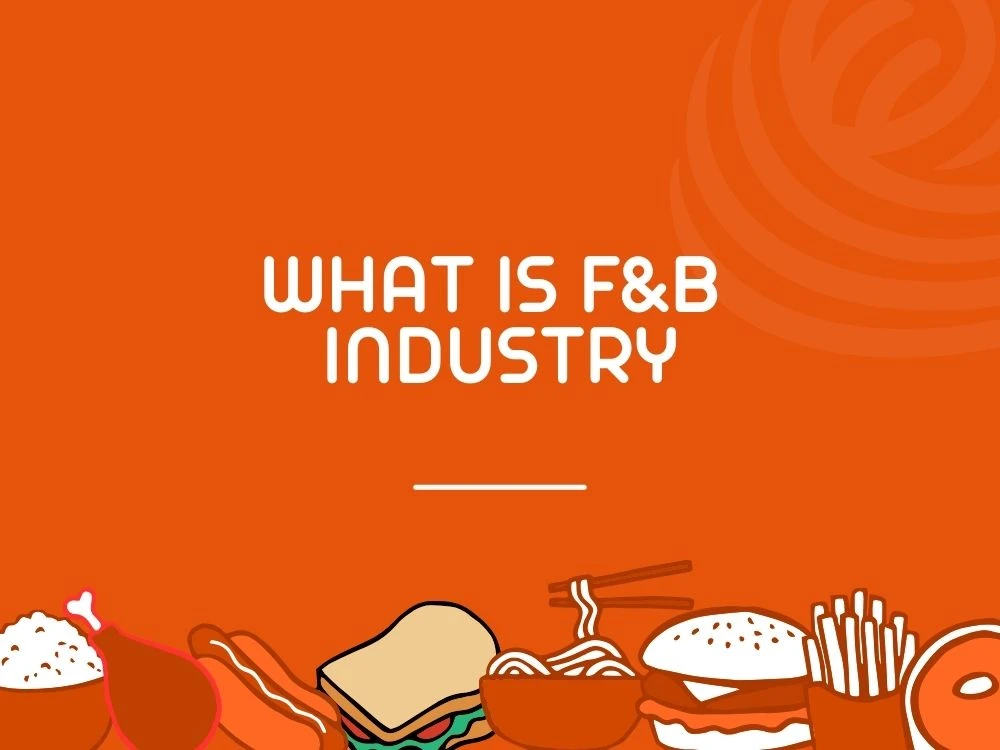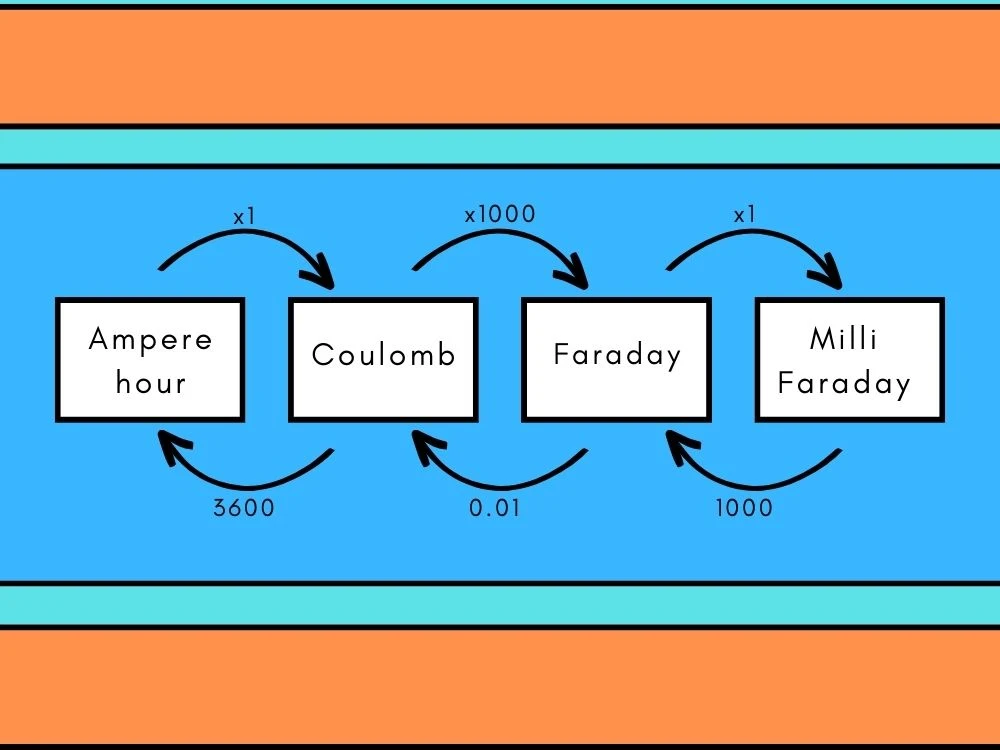
Food and Beverage (F&B) Industry and the Use of Electric Unit Converters
The food and beverage (F&B) industry is a rapidly growing business worldwide, including small startups and large corporations. In this industry, many functions are identified such as food or beverage manufacturing, food delivery, culinary operations, and more.
The F&B industry utilizes several electronic appliances for food production and other functions. Here, an electric unit converter is useful for choosing the right electrical equipment, meeting industry standards, ensuring energy efficiency, and for several other purposes.
Key Takeaways
- Understand what is the Food and Beverage (F&B) industry.
- Learn what is an Electric Unit Converter and the available conversion options.
- Learn how F&B industries utilize an Electric/Voltage unit converter for their needs.
Understanding the F&B Industry

A) What is an F&B Industry?
An F&B simply means businesses that are involved in producing, processing, distributing, and serving food or beverage items to consumers. It can be identified as anything like an agricultural firm, food processing companies, hotels and restaurants, and several other organizations.
The industry is crucial and functions as one of the backbones of the global economy. The demand for this industry never ends because humans need food for survival. Moreover, the F&B industry should be careful in producing and serving food or beverages because tight food safety regulations are in place.
B) Challenges for the F&B Industry Related to Electrical Units
F&B industries face certain challenges while doing their operations. Here are some common challenges identified as:
- Ensuring Voltage Compatibility: Ensuring the electrical appliances' compatibility with different voltage conditions and standards is a challenge. The industry should overcome voltage incompatibility challenges by matching their appliances based on different voltage standards.
- Ensuring Power Stability: In food and beverage operations, it's vital to maintain a uniform power supply for smooth operation. Voltage fluctuation can lead to an unstable power supply that can damage equipment and cause breakdowns.
- Ensuring Energy Efficiency: The F&B industry faces challenges in utilizing energy-efficient electrical appliances and machinery for production. Choosing low-current consuming equipment for production and other vital stuff is a critical challenge to optimize energy and budget.
- Ensuring Compliance with Electrical Standards: It is always important to ensure compliance with electrical standards and regulations while performing production and other related works in F&B industries.
Exploring Electric Unit Converters

A) What is An Electric Unit Converter?
An electric unit converter is a tool that helps convert various electric units effectively. The tool at Smart Tools AI is easy to use and accurate. The important thing is you can utilize this tool anytime from anywhere using any device. Moreover, the tool is completely free to use.
If your company deals with electrical devices and units like many other companies do, then this tool must be on your list. It converts different electrical units such as:
- Abcoulomb (AbC): This is known for the measurement of an electric charge that equals one electromagnetic unit of charge. Industries use AbC to quantify the amount of charge flowing through a circuit.
- Ampere hour (A hr): A hr is the common unit that quantifies the electric charge passing through a circuit in one hour at a consistent current of one ampere. This unit can be the measurement of energy usage over time.
- Coulomb (Cb): Cb is known as the basic unit of electric charge in the International System of Units (SI). It is the fundamental quantity of charge that is carried by particles like electrons.
- Faraday (F): This is a measure of electric charge transferred by one mole of electrons in an electrolyte solution. This can be a practical unit for electromechanical calculations.
- Microfaraday (µF): A unit that is equivalent to one-millionth of Faraday. Also, Industries use this unit to effectively measure small capacitance values in electronic circuits.
- Millifaraday (mF): mF is a smaller unit than the Faraday which equals one-thousandth of a faraday. This unit is commonly used to precisely calculate capacitance.
- Picofaraday (pF): A unit that represents a minute unit of capacitance. This unit is equivalent to one trillionth of a faraday. Industries use this unit to measure extremely small amounts of charge or capacitance in electronic components.
- Statcoulomb: This unit is an electrostatic unit of charge in the cgs (centimeter-gram-second) system that helps measure the quantity of electric charge concerning static electricity in cgs units.
B) Types of Conversions and the Steps to Follow to Use the Tool
The Electric Converter tool helps you convert between the above-mentioned electric units effectively. All you have to do is just navigate to the tools page at Smart Tools AI, and select whatever units you want the conversion from the available units in the Dropbox. You will be able to see the conversion amount on the top which easily helps you understand.
See some examples of conversions:
- Abcoulomb to Ampere-hour: 10 Abcoulomb equals 0.028 Ampere-hour.
- Ampere-hour to Coulomb: 1 Ampere-hour equals 3600 Coulomb
- Ampere-hour to Faraday: 01 Ampere-hour equals 0.037 Faraday
- Faraday to Coulomb: 01 Faraday equals 96521.9 Coulomb
- Faraday to Millifaraday: 01 Faraday equals 1000 mF
- Statcoulomb to Picofaraday: 100000 Statcoulombs equal 0.346 Picofaraday
The Role of Electric Unit Converters in the Food and Beverage Industry
Electric unit converters play a major role in various applications in the F&B industry. Here are some specific applications:
1. Food processing: Electric unit converters are used to ensure that food processing machinery or equipment is compatible with electrical units like current and voltage. Ensuring this is prominent to streamline a smooth food processing operation. Also, the converters help ensure consistent performance and quality in the food processing outputs.
2. Beverage production: The tool helps regulate the power supply which is crucial for the continuous operation of equipment in beverage production. This reduces unnecessary breakdowns from power outages, maintenance issues related to power supply, etc. This way the beverage production companies can ensure consistent operation.
3. Food Service Establishments: Different food service organizations like restaurants, hotels, and cafes use electric unit converters to adapt appliances like ovens, refrigerators, and other kitchen appliances with specific voltage requirements. This can enhance the operational efficiency and safety.
Wrapping Up
Food and Beverage is a growing industry that functions across food or beverage production, distribution, and related services. While conducting their operations F&B industries utilize various machinery, appliances, and other electrical devices.
An Electric Unit Converter is useful for converting different electric units and helps maintain the equipment voltage compatibility, continuous power stability, improving energy efficiency, and complying with electrical industry standards.
Moreover, the tool is efficient in reducing issues like voltage incompatibility, or power instability which can affect continuous operation. However, utilizing the tool can help rectify the issues and adapt to industry standards.
Explore Related Posts
https://smarttoolsai.com/post/temperature-converter-in-food-manufacturing-hvac-system-and-laboratory
.webp)